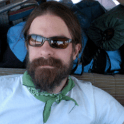
David Barbeau
Clastic sedimentology, tectonics and sedimentation, basin analysis, thermochronology, sediment provenance, and tectonics of the southern Andes and Antarctica.
The following faculty are involved with Biogeochemistry or Geochemistry Research. Their research involves the study of the processes and reactions that govern the composition of the environment both in the present day and throughout the geologic past; the interaction and co-evolution of the biosphere and geosphere; the elemental cycles of carbon, phosphorus, nitrogen, and sulfur, and the structure and function of ecosystems.

Clastic sedimentology, tectonics and sedimentation, basin analysis, thermochronology, sediment provenance, and tectonics of the southern Andes and Antarctica.

Biogeochemical cycling and export fluxes of nutrients. Global climate change in past and present day environments. Utilization of cosmogenic and uranium series radioisotopes to study ecological processes. Development of new analytical techniques.
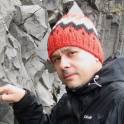
Radiogenic isotope (Hf, Nd, Sr, Pb, Os) and trace element geochemistry, Igneous Petrology, in their broadest sense. Geochemical evolution of the Terrestrial mantle. Mantle plume dynamics, plume-lithosphere interaction, and the origin of Ocean Island volcanism. Water and the fate of volatiles in the mantle. Element fluxes in subduction zones. Elemental exchange between seawater and mantle lithosphere in hydrothermal systems. Hg-isotopes as a tracer of Hg cycling in the environment. Elemental fluxes in salt marshes and coastal environments.
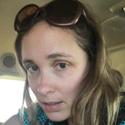
Marine biogeochemistry, Marine nitrogen cycle, Nitrogen and carbon stable isotopes, Molecular microbial ecology, Dissolved gases (N 2 , O 2 , Ar) as tracers of oceanic physical and biological processes, Trace gas production (N 2 O) in marine environments, Chemosynthetic deep-sea ecosystems, Oxygen minimum zones.
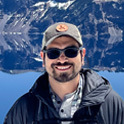
Dr. Cisneros de León’s research explores the complex processes and timescales that shape Quaternary magmatic systems responsible for explosive eruptions. His work focuses on the microanalysis of geochronologically significant accessory minerals, particularly zircon, integrating field observations with petrochronology, high-temperature geochemistry, thermochronology, chemical diffusion studies, and thermochemical modeling.

Microbes interact among themselves and with the physical world. They respond to environmental changes in ways that shape the physical world in turn. I develop, apply, and integrate novel methods in microbial ecology and geochemistry to study these intricate relationships found in marine environments.
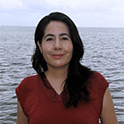
Dr. Romero’s research focuses on uncovering geochemical signatures in the ocean as archives of how marine systems function and respond to natural and anthropogenic events. She uses organic chemistry and isotopic tracers in diverse samples from natural environments, and experiments to study the source, transformation processes, and fate of molecules in marine systems.

Bioavailability of Arctic soils, Biogeochemistry of darkening glacier surfaces, Environmental controls of hydrocarbon degradation